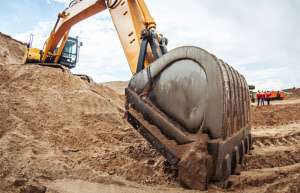The Best Type of Civil Engineering for Different Needs
Engineering for different needs
Different types of engineering are applied in order to address different needs. For example, civil engineering is concerned with the design, construction, and maintenance of infrastructure such as roads, bridges, and dams. This type of engineering is necessary in order to accommodate the needs of a growing population.
Some of the most popular civil engineering feats are skyscrapers and bridges. Engineering these massive structures requires a deep understanding of structural principles.
Skyscrapers are built to be incredibly strong and stable, able to withstand high winds and heavy loads. The supports for these buildings must be placed deep into the ground, anchored securely to ensure that the building does not topple over.
Bridges are another common civil engineering project. These structures must be able to support the weight of traffic while spanning long distances. The design of a bridge must account for the movement of the earth, as well as the effects of weathering and corrosion.
Environmental engineering: water treatment plants, air pollution control
As the world becomes more industrialized, the demand for infrastructure to support this growth increases. This in turn puts a strain on the environment, which must provide the resources and space for this development. Environmental engineering is the field of study that works to mitigate these negative impacts by finding ways to use natural resources more efficiently and developing systems that protect and restore the environment.
Water treatment plants are one example of environmental engineering in action. These plants remove contaminants from water sources so that they can be used safely for drinking, irrigation, and other purposes. Air pollution control is another area where environmental engineers work to protect public health and reduce emissions from factories and other sources.
With the world population projected to reach 9 billion by 2050, it is clear that there will be even greater demands on our infrastructure.
Geotechnical engineering: dams, tunnels
Geotechnical engineering is the science that deals with the mechanical behavior of earth materials. It applies principles of soil mechanics, rock mechanics and foundation engineering to the design, construction and maintenance of foundations, slopes, retaining structures, embankments, tunnels, levees and other earth-related structures.
Geotechnical engineers are involved in the design and construction of dams, tunnels, bridges, pipelines and other infrastructure projects. They also provide advice on environmental issues such as landfill design and contaminated land remediation.
Geotechnical engineering is a vital part of the civil engineering profession. It helps to ensure that our infrastructure is safe and fit for purpose.
Transportation engineering: highways, transit systems
As the world becomes more industrialized, the demand for efficient transportation systems increases. Highway and transit engineers play a vital role in developing these systems and ensuring that they operate smoothly.
Highway engineering is the branch of civil engineering that deals with the planning, design, construction, operation, and maintenance of highways. Transit engineering is similar but focuses on public transportation systems such as buses and trains.
Both highway and transit engineers must have a strong understanding of mathematics, physics, and mechanics in order to perform their duties effectively. They use this knowledge to determine the best way to construct and maintain safe and efficient transportation systems.
Conclusion: choosing the best type of civil engineering
In conclusion, there are many different types of civil engineering, and the best type for a specific project depends on the project’s requirements. For example, structural engineering is concerned with the design and construction of buildings and bridges, while geotechnical engineering is concerned with the stability of slopes and foundations. The best type of civil engineering for a specific project can be determined by consulting with a civil engineer.




Comments
Post a Comment